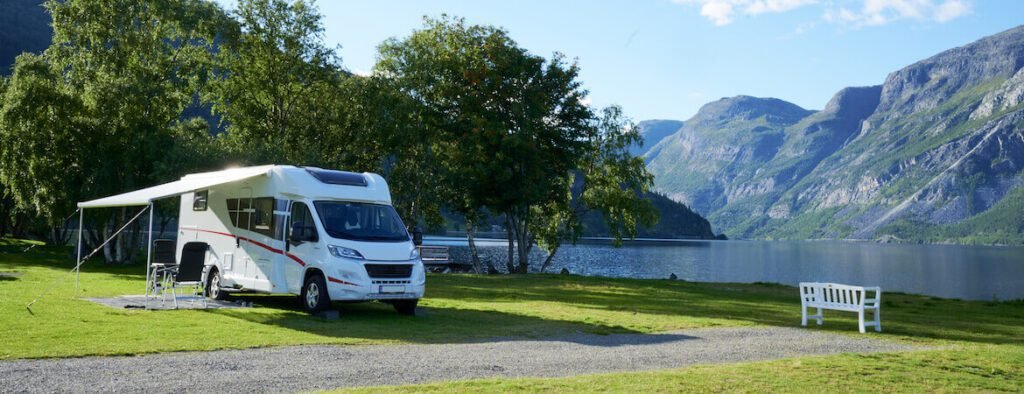Accessible travel: mobile homes for people with disabilities by CamperDays
Anyone who travels would like to be able to enjoy the highest possible degree of freedom and flexibility – this, of course, also applies to people with disabilities. With the right equipment, people with disabilities can travel more independently and enjoy the real advantages of access camping holidays: the closeness to nature, the freedom to choose where to go and the relaxed atmosphere on the campsite.
What does barrier-free mean?
In most cases, the term ‘barrier-free’ refers to campsites that are accessible to people with mobility restrictions. However, in the further development of barrier-free campsites, it is important to also remove barriers that are not related to mobility. For example, signs or information boards can be very helpful for people with visual impairment through a high-contrast design or the use of braille.
What are the requirements for barrier-free camping?
To make a barrier-free holiday possible for people with limited mobility, several prerequisites must be met:
-
The means of transport to the destination must be accessible to people with disabilities.
-
Accommodation at the destination must be barrier-free.
-
Leisure activities can be accessible designs: e.g. access to beaches, wheelchair-accessible hiking trails.
In terms of camping holidays, this means that both the mobile home and the campsite should have no barriers. Travelling to the campsite should be as comfortable as possible and wheelchair users should be able to explore the campsite grounds without difficulties. Those wishing to explore a little should find out whether the local facilities are barrier-free and whether any local excursions are accessible for wheelchair users.
What equipment does a wheelchair-accessible motorhome need?
A specially adapted motorhome allows people with physical impairments to travel without any problems. For campers who are dependent on a wheelchair, there are generally two options:
-
Convert a motorhome to be barrier-free: The biggest advantage is that the motorhome can be adapted to the needs of individuals and no compromises must be made in terms of equipment.
-
Renting a motorhome that is accessible to the disabled: This option is particularly worthwhile for holidaymakers with an impairment who first want to try out whether they will enjoy an accessible holiday in a motorhome. In addition, it is much cheaper to rent a motorhome than to buy and convert one.
A wheelchair-accessible mobile home must have the same adaptations as barrier-free flats or houses. The basic requirements are:
-
Access to the motorhome via ramp or lift
-
Wider doors (approx. 90 cm)
-
Wider and accessible interior
-
Adaptations to the driver’s cabin (e.g. driver’s seat or steering
-
Barrier-free bathroom (e.g. accessible toilet and shower with handrails)
-
Wheelchair accessible adaptations to the living area (e.g. beds and kitchenette)
To read the full article please click here

